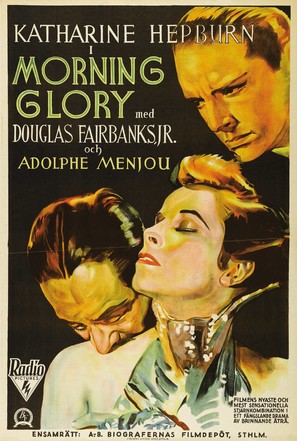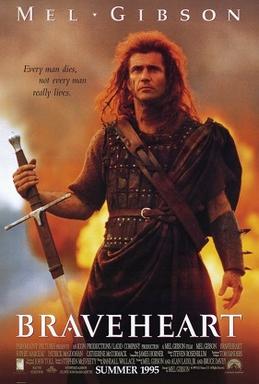 Leave Her to Heaven
Leave Her to Heaven, 1945
Novelist Richard (Cornel Wilde) meets Ellen (Gene Tierney) by chance on a trip and the two engage in a strange, brief courtship before marrying. But very soon into the marriage, Richard discovers that Ellen's love is a dangerous beast, and she has no patience for anyone or anything that might come between them. This includes Richard's little brother, Danny (Darryl Hickman) and Ellen's own sister, Ruth (Jeanne Crain).
I mean . . .
dang Gene Tierney!
There's nothing like watching a few middling films in a row and then watching something that just totally knocks your socks off. And a certain sequence in this film may have blasted my socks into the neighboring county.
The icy heart of the movie is Tierney's turn as Ellen, a woman who seems to have some issues from the start---including an unhealthy fixation on her deceased father---but before our eyes (and, more slowly, before Richard's eyes) morphs into a stone-cold sociopath. Everything about it is perfect. Tierney's performance, which somehow creates a stomach-turning mix of ferocity and blankness, is utterly compelling. Many images of this film include an iconic shot of Ellen wearing red-rimmed sunglasses. But I love the shot at the top of this review because it captures a perfect stillness that just doesn't belong on a human being. The makeup and styling of Ellen also does wonders for the character: everything is just too perfect, too in its place.
While the film makes no bones about Ellen's status as villain, I did appreciate that there seem to be some nods toward the way that Richard--and to a lesser extent Ruth--behave in ways that seem almost engineered to upset her. I realize that might sound like victim blaming, but how can you not facepalm when Richard, knowing Ellen's obsession with her father AND her hatred of surprises, decides to
surprise her by dismantling her father's laboratory?! Richard, ya big dummy! What are you doing? Likewise, Ellen gives up her honeymoon to care for Richard's brother, and yet Richard totally fails to make any gesture toward finding them some time alone together. While Ellen's reactions to these transgressions are totally out of scale, it does slightly do a job of putting you in her shoes and feeling some of her frustration. It keeps her just human enough, whereas a character being cruel for truly no reason would have felt unrealistic.
The look of the movie is also just splendid. Wide open spaces and deep color saturation. The more vivid the colors around Ellen become--including the ruby red of her own mouth--the more blanched and icy her eyes seem to become.
The supporting performances are all quite good, including a young Vincent Price as Ellen's former fiance.
I have one qualm with the film, something that I think is a symptom of its age, that I cannot discuss without MAJOR SPOILERS. If you haven't seen this movie yet but are reading this review, I really really urge you to skip what is in the spoiler text, as it would rob you of one of the most breathtaking, out-of-nowhere moments of the entire movie.
WARNING: spoilers below
The decision to put Ellen's induced miscarriage after her killing of Danny didn't play that well for me. I think that they should be in the opposite order, and the movie implies that the former should be more horrifying and it just isn't. I'm sorry, but a depressed, upset, pregnant woman throwing herself down the stairs is nowhere near as upsetting in terms of a "crime" as the cold-blooded murder of a person thrashing and pleading for help in a lake. I'm absolutely not wanting to start any kind of conversation about abortion here, but a woman being forced to carry a fetus she doesn't want in her body is something that makes me sympathetic toward her, even if her reasons for not wanting the baby are totally selfish and warped. Additionally, throwing yourself down the stairs is really dangerous, meaning Ellen herself could have been killed or seriously injured in the attempt. It overall makes for a far less upsetting scenario than what happens in the lake. This isn't helped by the film not being willing to make Ellen look very pregnant at all. Dialogue later suggests that the baby might have been far enough along to be viable(?), but she doesn't look like a woman any further along than a first trimester.
I do see how the miscarriage attempt shows an escalation in Ellen's behavior in the sense that she is willing to endanger herself, something that then pays off in the last act. I just think that the lake scene is so searing and intense that it would have played better after something less intense.
The decision to put Ellen's induced miscarriage after her killing of Danny didn't play that well for me. I think that they should be in the opposite order, and the movie implies that the former should be more horrifying and it just isn't. I'm sorry, but a depressed, upset, pregnant woman throwing herself down the stairs is nowhere near as upsetting in terms of a "crime" as the cold-blooded murder of a person thrashing and pleading for help in a lake. I'm absolutely not wanting to start any kind of conversation about abortion here, but a woman being forced to carry a fetus she doesn't want in her body is something that makes me sympathetic toward her, even if her reasons for not wanting the baby are totally selfish and warped. Additionally, throwing yourself down the stairs is really dangerous, meaning Ellen herself could have been killed or seriously injured in the attempt. It overall makes for a far less upsetting scenario than what happens in the lake. This isn't helped by the film not being willing to make Ellen look very pregnant at all. Dialogue later suggests that the baby might have been far enough along to be viable(?), but she doesn't look like a woman any further along than a first trimester.
I do see how the miscarriage attempt shows an escalation in Ellen's behavior in the sense that she is willing to endanger herself, something that then pays off in the last act. I just think that the lake scene is so searing and intense that it would have played better after something less intense.
But these are minor,
minor quibbles.
What a scorcher. Am I gonna give it a perfect score? I think I just might!







